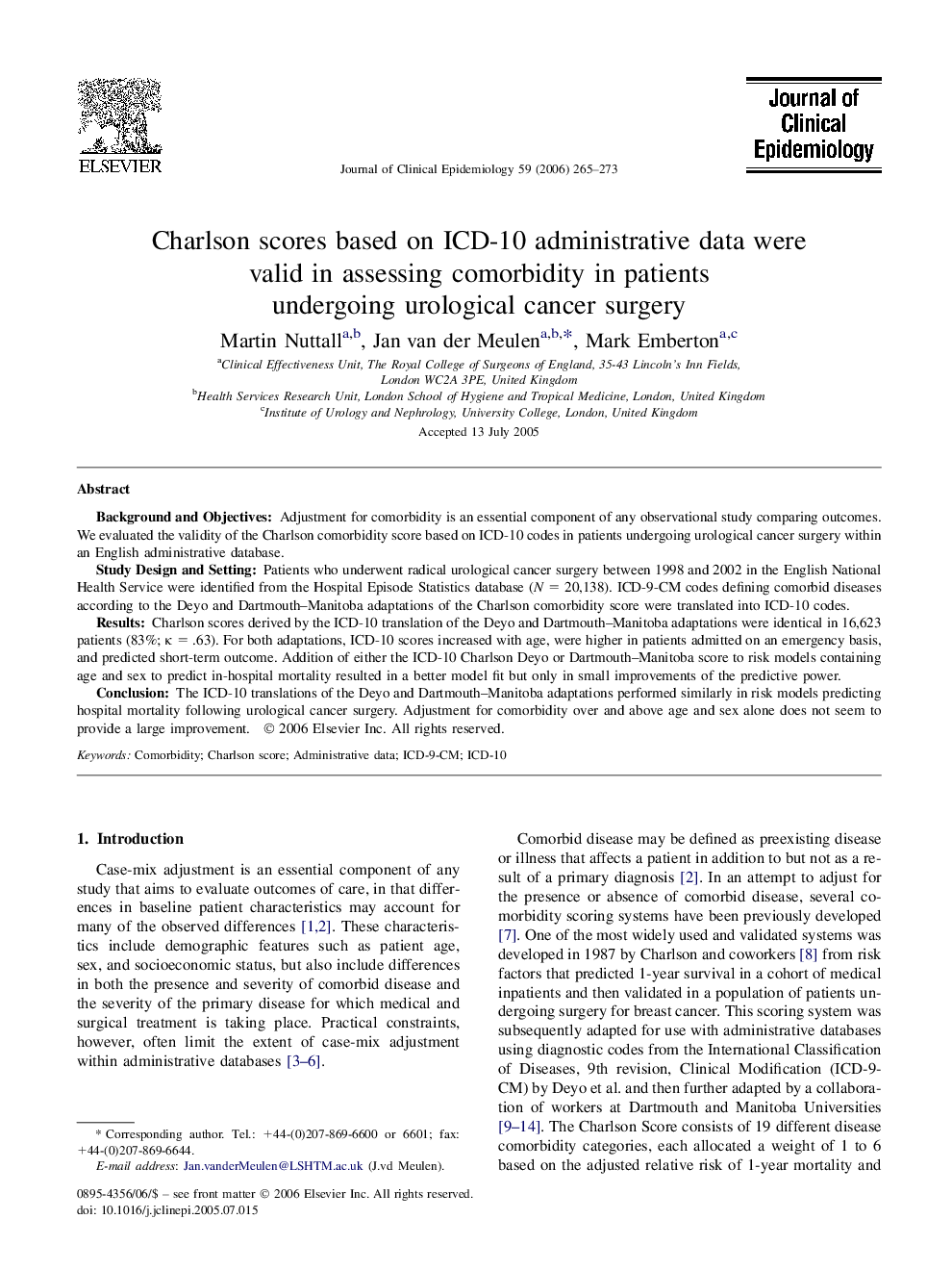| Article ID | Journal | Published Year | Pages | File Type |
|---|---|---|---|---|
| 1083593 | Journal of Clinical Epidemiology | 2006 | 9 Pages |
Background and ObjectivesAdjustment for comorbidity is an essential component of any observational study comparing outcomes. We evaluated the validity of the Charlson comorbidity score based on ICD-10 codes in patients undergoing urological cancer surgery within an English administrative database.Study Design and SettingPatients who underwent radical urological cancer surgery between 1998 and 2002 in the English National Health Service were identified from the Hospital Episode Statistics database (N = 20,138). ICD-9-CM codes defining comorbid diseases according to the Deyo and Dartmouth–Manitoba adaptations of the Charlson comorbidity score were translated into ICD-10 codes.ResultsCharlson scores derived by the ICD-10 translation of the Deyo and Dartmouth–Manitoba adaptations were identical in 16,623 patients (83%; κ = .63). For both adaptations, ICD-10 scores increased with age, were higher in patients admitted on an emergency basis, and predicted short-term outcome. Addition of either the ICD-10 Charlson Deyo or Dartmouth–Manitoba score to risk models containing age and sex to predict in-hospital mortality resulted in a better model fit but only in small improvements of the predictive power.ConclusionThe ICD-10 translations of the Deyo and Dartmouth–Manitoba adaptations performed similarly in risk models predicting hospital mortality following urological cancer surgery. Adjustment for comorbidity over and above age and sex alone does not seem to provide a large improvement.
